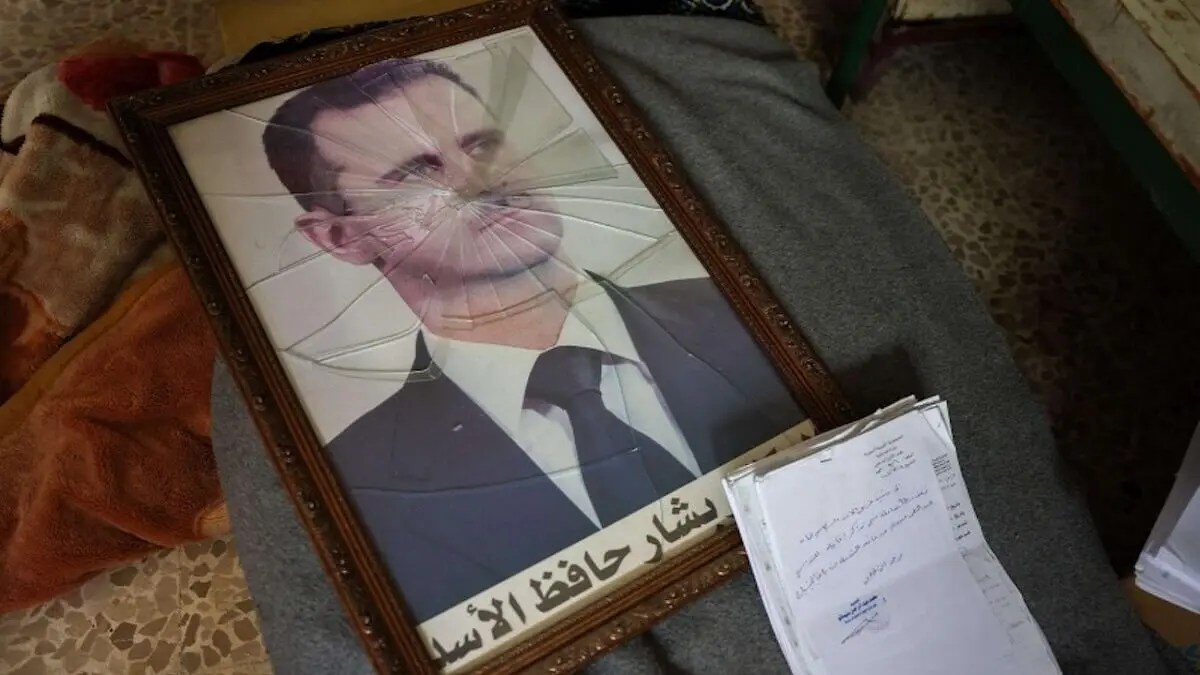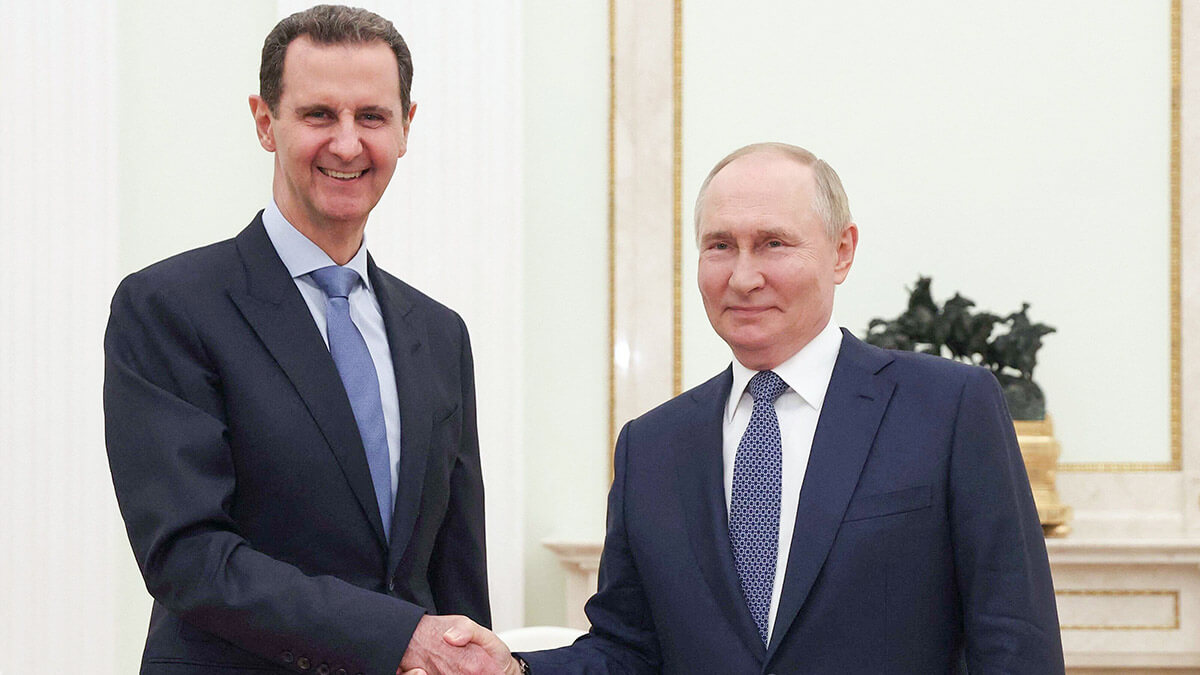Assad regime falls in Syria

Without resistance and with hardly any shooting, as happened three years ago in Afghanistan with the Taliban, the jihadist group Hay'at Tahrir al-Sham (HTS) has announced the official fall of the regime of Syrian President Bashar El Assad with the capture of the capital Damascus, the dismissal of the army chiefs and the prime minister of the government.
Through state television, the rebels announced this Sunday morning the overthrow of the “tyrant” Bashar al-Assad and the release of all “oppressed” detainees, calling on citizens and fighters to preserve state property.
A group of nine rebels crossed state television from inside the news studio. One of them read a statement attributed to the “Damascus Opening Operations Room”, shortly before a Syrian official told Reuters that the army command had informed officials that President Bashar al-Assad's rule had ended and that he had left the country aboard a plane to an unknown destination.
Data from the Flight Radar website indicated that a Syrian Airlines plane took off from Damascus airport at the same time as the rebels announced they had gained control of the capital. Russia has confirmed in a statement that Bashar al-Assad has left Syria after negotiating a peaceful transfer of power with the insurgents.
On the streets of Damascus, thousands of Syrians in cars and on foot gathered in a downtown square. the Umayyad Square, to celebrate “freedom” following the fall of the Assad family's nearly 50-year rule and the announcement of the end of the era of injustice at Saydnaya prison, a large military prison on the outskirts of Damascus where the Syrian government has imprisoned thousands of people.

Statements
The leader of the main Syrian opposition movement abroad, Hadi Al-Bahra, also announced on Sunday that Damascus is now “without Bashar al-Assad.”
Syrian Democratic Forces commander Mazloum Abdi on Sunday praised the “historic moments” Syrians are living in with the fall of the “authoritarian” regime that ruled the country for about a quarter of a century.
“We live in Syria and we are witnessing the fall of the authoritarian regime in Damascus,” said Abdi, whose forces received U.S. support and whose backbone is doubted by the Kurds, considering ”this change an opportunity to build a new Syria based on democracy and justice that guarantees the rights of all Syrians.”
As Syrians celebrated, Prime Minister Mohammad Ghazi Al-Jalali said he was ready to support the continuity of state affairs and cooperate with any leadership elected by the Syrian people.
Eyewitnesses told the German news agency that members of Syrian opposition forces entered the presidential palace in Damascus, chanting “Allahu Akbar.”
The palace is called the People's Palace and is located in the Mezzeh area, west of the city.
Videos circulating on social media showed opposition forces in the palace square and at the entrance gates.
Western monitoring
The White House said President Joe Biden and his team were monitoring “extraordinary events in Syria” and in contact with partners in the region.
Syria's complex civil war fronts have been dormant for years. The fighters, once allied with Al-Qaeda, moved quickly to pose the biggest challenge to Assad, who has withstood years of war of attrition and international isolation with the help of Russia, Iran and the Lebanese group Hezbollah.
But his allies focused on other crises that weakened them, suddenly leaving Assad at the mercy of his opponents with an army that was not ready to fight.
The HTS leader said Sunday that he “strictly forbids approaching public institutions, which will remain under the supervision of the former prime minister, until they officially surrender, and firing in the air is also forbidden.”
Israel, which has severely weakened Iranian-backed Hezbollah in Lebanon and Hamas in Gaza, is likely to celebrate the fall of Assad, Tehran's main allies in the region. But the prospect of Syria being ruled by a jihadist group is likely to raise concerns.
Hours before reaching Damascus, Syrian opposition forces declared full control of the key city of Homs early Sunday, just a day after fighting threatened the 24-year rule of Bashar al-Assad.
The fall of Homs gave opposition fighters control of Syria's strategic heartland and an important crossroads, separating Damascus from the coastal region, which is the stronghold of the Alawite community to which Assad belongs, where his Russian allies have the Tartus naval base and the Lakatia air base.
The pace of events has somewhat surprised Arab capitals and raised fears of a new wave of regional instability.
Qatar, Saudi Arabia, Jordan, Egypt, Egypt, Iraq, Iran, Turkey and Russia issued a joint statement saying the crisis constituted a dangerous development while calling for a political solution.
Syria's civil war, which erupted in 2011 after an uprising against the Assad government, has attracted significant external forces and displaced millions of refugees to neighboring countries.
Uncertain future
Hay'at Tahrir al-Sham, the most powerful opposition group, is the former al-Qaeda branch in Syria and is considered a terrorist organization by the United States and other countries. Many Syrians still fear the imposition of a hard-line Islamist government.
Its leader, al-Golani, sought to reassure minorities that he would not interfere in their affairs and in the international community he opposed militant attacks abroad. In Aleppo, which was seized by rebels a week ago, there were no reports of retaliation.
When Russian Foreign Minister Sergei Lavrov was asked on Saturday whether he believed in al-Golani, he replied, “Experience is the best test.”
Syrian army sources said on Sunday that the Iranian-backed Lebanese group Hezbollah withdrew from the town of Al-Qusayr, on the border with Lebanon, before being checked by opposition forces.
At least 150 armored vehicles with hundreds of Hezbollah fighters on board left the town, which has long been a point on the route for transporting weapons to and from Syria, various sources in the area said, with Israel shelling one of the convoys as it was leaving.
Assad has long relied on allies to take on the opposition, with Russian warplanes carrying out bombing operations while Iran sent fighters from allied groups such as Hezbollah and Iraqi factions to support the Syrian army and assault opposition strongholds.
But Russia has been focused on the war in Ukraine since 2022 and has suffered heavy losses during its fight with Israel, significantly limiting Iran's ability or capacity to support Assad.
U.S. President-elect Donald Trump said the United States should not get involved in the conflict.








